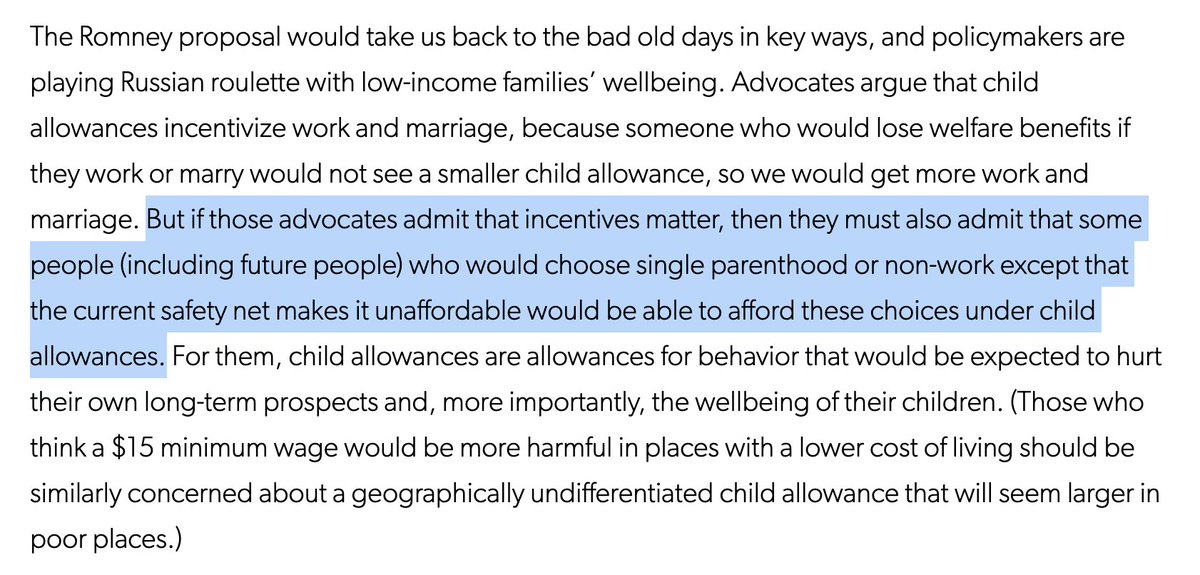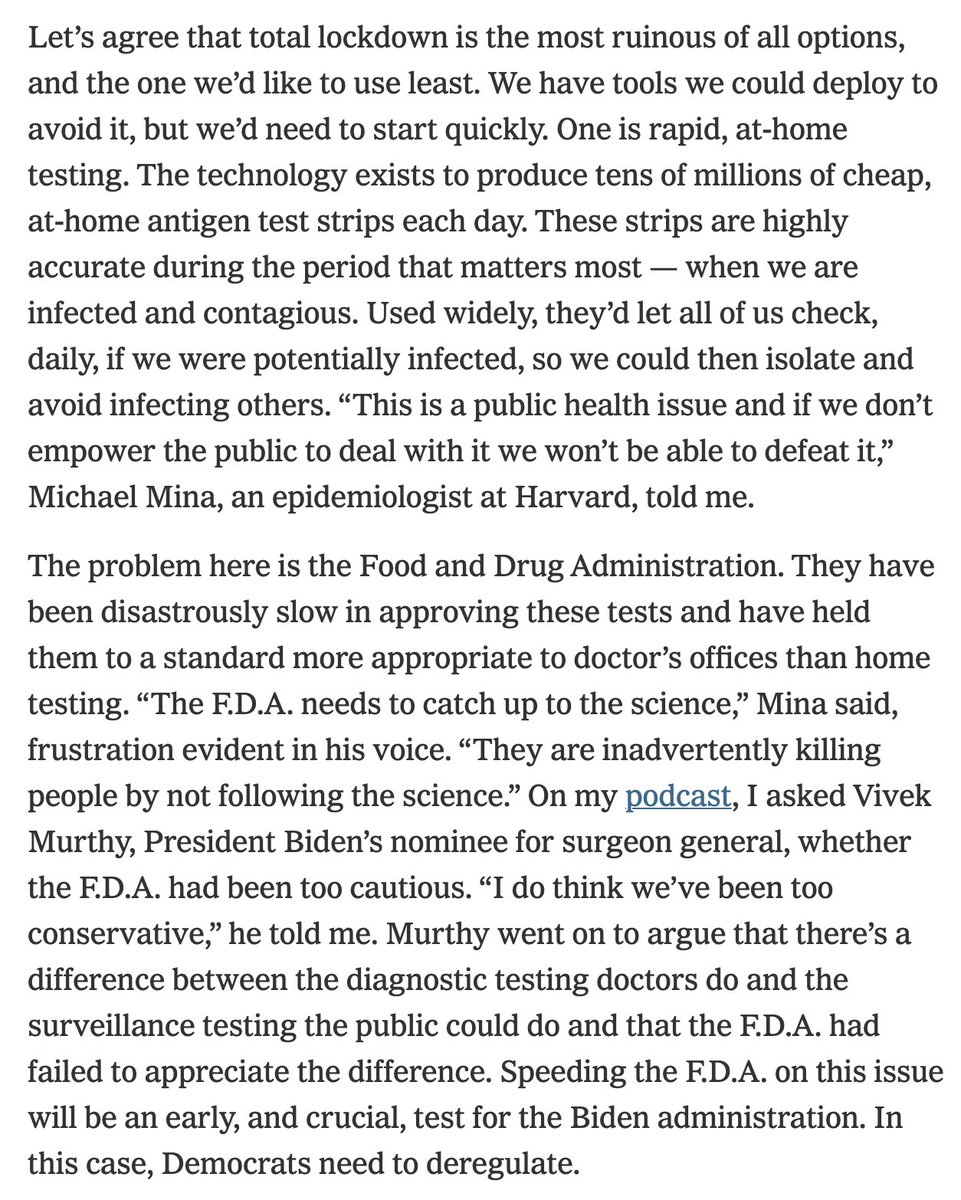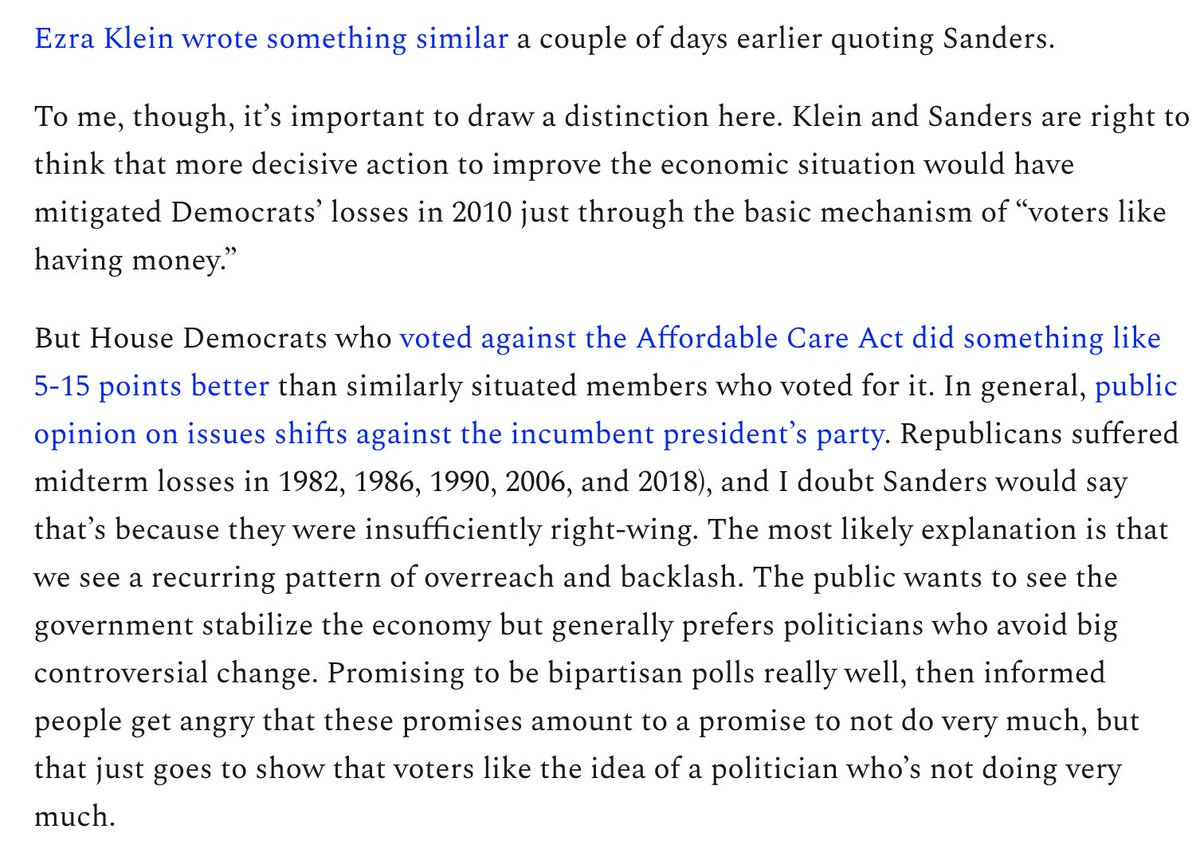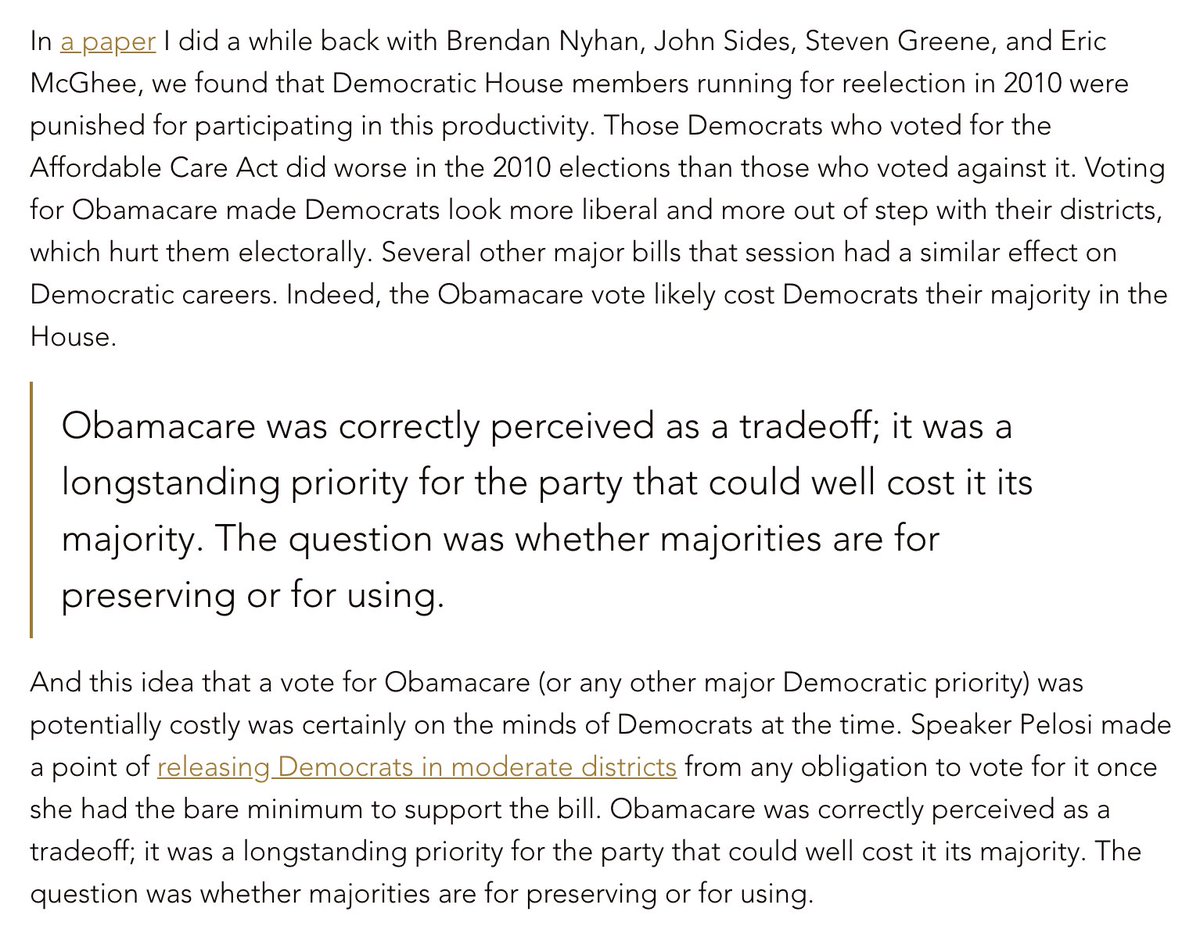
“I don’t think conservatism can do its job in a free society in opposition to the institutions of that society,” Yuval Levin told me. “I think it can only function in defense of them.”
You can listen to — or read — our whole conversation here: nytimes.com/2021/02/05/opi…
You can listen to — or read — our whole conversation here: nytimes.com/2021/02/05/opi…
One thing I'd pull out: A lot of our conversation is about the weakness of Republicans institutions.
When I brought this up, Levin responded that a reason Republicans have fled a lot of mainstream institutions is they've become more liberal.
When I brought this up, Levin responded that a reason Republicans have fled a lot of mainstream institutions is they've become more liberal.
Causality there is complicated, and we go back and forth on it in the full conversation. But even if you buy that explanation completely, it doesn't explain away the problem.
Why didn't Republicans didn't set up similarly rigorous, but conservative, institutions in response to liberal bias?
Think of Tucker Carlson saying at CPAC that the right needs a New York Times, then building...the Daily Caller.
Think of Tucker Carlson saying at CPAC that the right needs a New York Times, then building...the Daily Caller.
I thought Levin's response was useful: the right hasn't set up alternative institutions. They've set up "critical institutions" whose function is to attack mainstream institutions, but they don't actually replace the basic functions those institutions provide. 

You can listen wherever you get your podcasts, or there's a full transcript here. nytimes.com/2021/02/05/pod…
• • •
Missing some Tweet in this thread? You can try to
force a refresh







